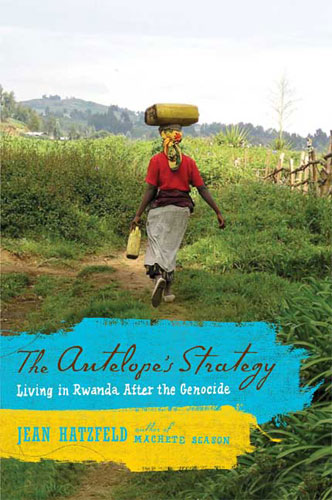There is nothing quite as awesome (read: politically correct) as Congoles e paraplegics who ride motorized tricycle wheelchairs and play guitars in a zoo. Which is why writing articles about Kinshasa rumba band Staff Benda Bilili is both fun and awkward. In recent reviews of the band’s new album Tres Tres Fort, the Guardian described the inner-workings of the group:
e paraplegics who ride motorized tricycle wheelchairs and play guitars in a zoo. Which is why writing articles about Kinshasa rumba band Staff Benda Bilili is both fun and awkward. In recent reviews of the band’s new album Tres Tres Fort, the Guardian described the inner-workings of the group:
When they’re not busy prowling their local dilapidated zoological gardens or flogging cheap booze and fags outside nightclubs, the band sing and play their instruments while sitting on bizarre customised tricycles as a bunch of younger, all-acoustic players – including an ex-street kid who plays a one-string electric lute he designed and built himself out of a tin can – bash out various infectious rhythms behind them. What’s Congolese for, “We’re not judging or anything, but what is THAT?”
The BBC obviously felt more uncomfortable about the whole thing and only tell us:
Staff Benda Bilili hail from the streets of Kinshasa. A group of disabled musicians form the core of the band. Backed by a younger, acoustic rhythm section and a hand made, electric one string lute called the Satonge.
And NPR Music reports:
Staff Benda Bilili (is) a group of paraplegic street musicians who entertain from their base near the city’s zoological gardens.
Zoological gardens? Sounds like the city board of Kinshasa is really investing in local scientific spaces and friendly urban planning initiatives. On a scale of PC Africa representation, NPR wins the gold medal.
And while everyone should have at least one Congolese paraplegic musician friend, if you can’t find one, listen to Staff Benda Bilili’s new record just so you can keep that dream alive.

 genocide. He has spent the past ten years unpacking the violence, sitting with both killers and victims day after day, primus after primus. Hatzfeld’s recently translated third book, “
genocide. He has spent the past ten years unpacking the violence, sitting with both killers and victims day after day, primus after primus. Hatzfeld’s recently translated third book, “ the FDLR? Apparently, they no longer exist.
the FDLR? Apparently, they no longer exist. 